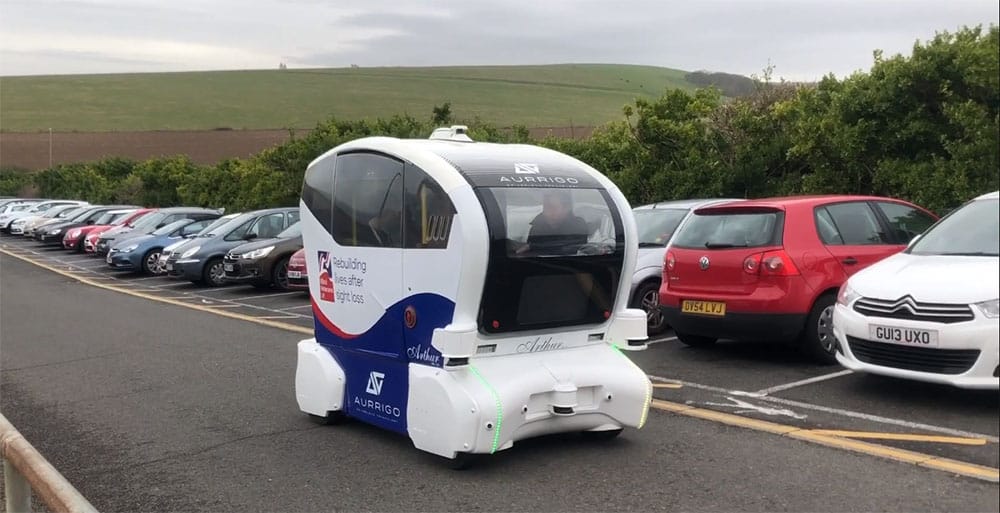Government says new transport tech must focus on accessibility for older and disabled people

Helping to overcome difficult or inaccessible travel for those with mobility needs, the UK Government has said that new modes of transport need to put older and disabled people at the heart of their development.
Speaking at the final media and showcase event for FLOURISH, a self-driving car project in Bristol aimed at improving the mobility of older people and those with mobility-related needs, Future of Mobility Minister Jesse Norman stated that new technologies have the potential to revolutionise everyday journeys for people with mobility issues, and this must be a key consideration for those companies developing future transport.
In its ‘Future of mobility: urban strategy’, the Government declared that transport innovations must be accessible by design in order to empower independent travel.
Speaking at the FLOURISH event at the University of Bristol, Jesse Norman MP said: “Self-driving technologies could greatly improve the mobility of vulnerable user groups, helping to address problems of isolation and loneliness across the country.
“The needs of older people, and those with visible or hidden disabilities, must be at the heart of all new modes of transport.”
This announcement follows the arrival of a range of exciting transport innovations, including the first trials of self-driving vehicles for blind veterans in the world.
A joint venture launched by Blind Veterans UK and Aurrigo in April 2019, the self-driving pods are equipped with accessible features including bright colour edges, door openings, and an external sounds system that changes tone and rate when objects in the path are detected.
Ruth Owen OBE, Chief Executive of Whizz-Kidz, commented: “Young wheelchair users tell us how important accessible transport is so they can be independent and make the most of their lives, and just how challenging travelling can sometimes be. It’s pointless booking a train ticket to go to work or attend a job interview if the right ramp isn’t available to get their wheelchair on the train.
“Improving accessibility is vital for the companies developing transport in the future if young disabled people are to be included and have access to the travel opportunities many others take for granted.”
This announcement on making new transport modes accessible is in line with the Government’s £300 million investment to make rail stations more inclusive for disabled passengers across Britain.
Rob Burley, Director of Campaigns, Care and Support at Muscular Dystrophy UK, said: “When public transport is inaccessible, it takes away the independence of people living with disabilities. We regularly hear stories about people’s terrible experiences, such as being turned away by bus drivers or missing their stop on the train because no one is around to assist. It’s not acceptable.
“There is still a long way to go until people living with disabilities have full accessibility, but this announcement shows we are heading in the right direction. We welcome the Department for Transport’s commitment to making public transport fully accessible by 2030. We, along with our campaigners, look forward to engaging with government to ensure that this happens.

